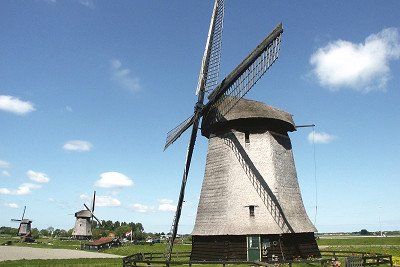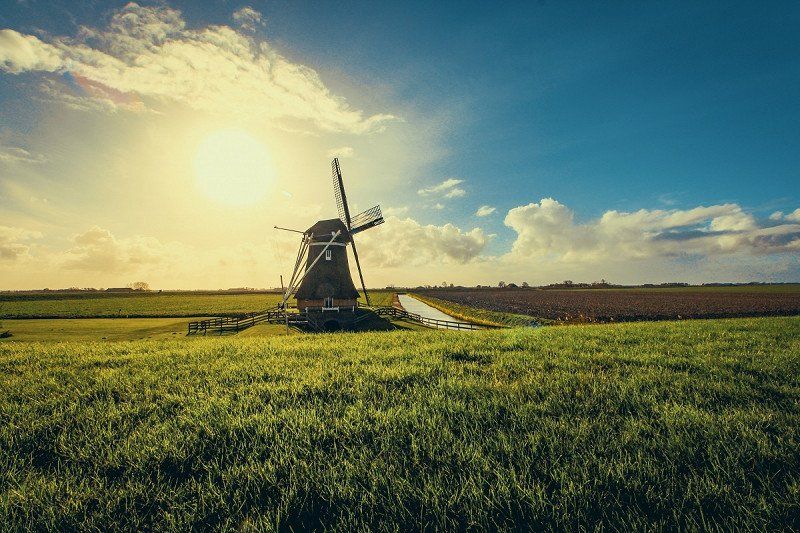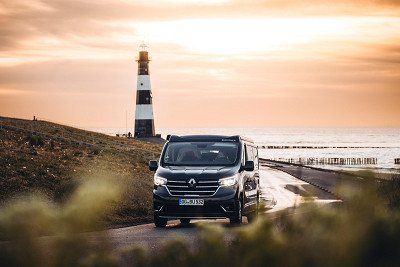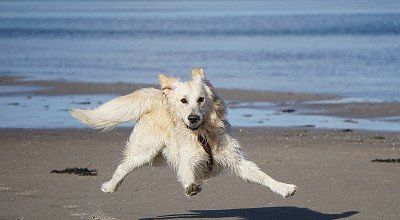Last update: February 24, 2025
Entry into the Netherlands
Entry requirements for citizens of the EU: For a tourist stay, EU citizens need a (provisional) passport or (provisional) ID card when entering the country. The temporary identity card must be valid and the other travel documents must not have expired for more than twelve months at the time of entry.
Entry of children to the Netherlands: If you travel with minors of which you are not the legal guardian, for example friends of your children, they should carry a declaration of consent from a legal guardian. The declaration should be officially certified for passengers under the age of 15.
Entry of pets into the Netherlands
Dogs and cats must meet the following requirements to enter the Netherlands: You need an EU pet passport, microchip identification and a valid rabies vaccination that is at least 21 days old.
Animals under the age of 15 weeks are not allowed to enter the Netherlands. After a former pit bull terrier ban, today all dog breeds are allowed to enter the Netherlands. However, you should carry a leash at all times, as leashes are compulsory in many places.
The main traffic rules for motorhomes and caravans in the Netherlands
Speed limits on Dutch roads
**Applies to trailers with a gross vehicle weight rating of up to 3.5 t. For trailers over 3.5 t zGG, the maximum speed is 80 km/h.
The speed limit on certain motorway sections in the Netherlands is expected to be increased to 130 km/h again from June 2025. This is currently being planned for the A6 Amsterdam - Emmeloord between Lelystad-North and the Ketel bridge, for the A7 Groningen - Amsterdam between Lorentzsluizen and Stevinsluizen (Ijsselmeer dam) and for the A7 Groningen - Bunde/D between Winschoten and the Bunde border crossing. Further motorway sections are expected to be added in the coming years.
Fines for speeding violations can be expensive in the Netherlands, depending on the pace. They were increased once again on 1 March 2023. For example, overspeeding with 20 km/h costs up to 219 euros in urban areas and up to 196 euros in non-urban areas.
Special rules for caravan combinations
In the Netherlands, both unbraked and braked trailers require a safety connection to the towing vehicle (rope / cable / chain or tear-off line / "Losbreekkabel"). This safety connection must also be attached to the towing vehicle or its trailer coupling using a special eyelet or bracket. It is not sufficient to loosely lay the safety rope or the tear-off line over the trailer coupling.
Information on tolls and vignettes in the Netherlands
Vehicles up to 12 t in weight are not subject to the Eurovignette requirement in the Netherlands. Anyone driving a motorhome or caravan team above this limit must, however, purchase a Eurovignette. In principle, there are no toll fees for traveling by car, motorhome or towing team in the Netherlands. However, there are two exceptions: However, there are two exceptions: the Kil tunnel from ‘s-Gravendeel to Dordrecht and, since December 2024, the new A24, which connects the A15 near Rozenburg with the A20 near Vlaardingen. The use of the Westerschelde Tunnel, on the other hand, has been free of charge for category 1, 2 and 5 vehicles since January 2025. This includes cars as well as motorhomes and caravan combinations.
This is the toll you pay on the A24: cars and motorhomes up to 3.5 tonnes and electric vehicles up to 4.25 tonnes pay 1.51 euros for a single journey; no additional charges are levied for trailers and caravans. HGVs and other vehicles heavier than 3.5 tonnes and electric vehicles heavier than 4.25 tonnes pay 9.13 euros for a single journey. However, there are no toll stations; the charges are levied electronically in the free-flow system by licence plate photography. To pay the toll, you must pay online within 72 hours of travelling. If you travel the route regularly, you can also register for automatic payment with various providers.
You pay this toll in the Kil tunnel: In the Kil tunnel, the amount of the toll is based on the height of the vehicle including the load. Vehicles up to 2.30 m height pay 2 euros for a one-way trip, while vehicles over 2.30 height pay an amount of 5 euros.

General traffic rules in the Netherlands
Gas stations - opening times and payment
In general, most petrol stations in the Netherlands are open from 7 a.m. to 8 p.m. Motorway gas stations are generally open around the clock. In addition to cash payments, the usual Maestro cards and credit cards are also accepted. Payment at the self-service petrol pumps is a little more difficult: Here, only Dutch cards are accepted. In general, credit cards are more common in the Netherlands than Maestro cards.
Drink-drive limit in the Netherlands
The permitted alcohol drink-drive limit in the Netherlands is 0.5 ‰. Incidentally, this also applies to cyclists. Violations cost up to 750 euros and often result in driving bans. If you refuse to carry out alcohol or drug tests, this can cost you a fine of 1,500 euros and can also lead to a prison sentence. Please note: for anyone who has his or her drivers license less than five years the drink-drive limit is 0.2 ‰ in the Netherlands.

General obligations and prohibitions
The use of seat belts is mandatory in the Netherlands. You also have to carry a warning triangle and a first-aid kit in your vehicle. There is no legal obligation for winter tires, the use of spikes is even prohibited. There is no lighting requirement during the day.
Child car safety seats in the vehicle
Child car safety seats are mandatory in the Netherlands for children under the age of 18 and up to 1.35 m tall.
Parking in the Netherlands
Of course, the regulations for parking depend on the different localities. In general, however, it can be said that parking is prohibited on curbs with a yellow marking, and you can park with a parking disc on edges with a blue marking. Spending the night in parking spaces that are not specifically designed and signposted for caravans and motorhomes is generally prohibited.
Attention, cyclists!
As is well known, in the Netherlands it is not the car but the bicycle that is the number one means of transport. Accordingly, many people participate in traffic on two wheels. Therefore, always keep your eyes open so that you do not overlook cyclists in traffic. On the other hand this means: If you want to ride your bicycle youself in the Netherlands, you will profit from well-developed bicycle paths and a very good infrastructure fro cyclists.

Talking on the phone while driving: In the Netherlands, anyone driving a vehicle is only allowed to talk on the phone using a hands-free device with external loudspeakers, otherwise a fine of 380 euros will be imposed as of 1 March 2023.
Low emission zones: In the cities of Amsterdam, Arnhem, The Hague and Utrecht, trucks and diesel-powered cars or motorhomes are only allowed to enter the city since 2025 if they can at least meet the Euro 5 exhaust emission standard. In Breda, Delft, Eindhoven, Haarlem, Leiden, Maastricht, Rijswijk, Rotterdam, `s-Hertogenbosch and Tilburg, the environmental zones have so far only applied to trucks over 3.5 t GVW. Registration or a special environmental badge is not necessary.


Important addresses and telephone numbers for holidaymakers in the Netherlands
European emergency number 112
You can get help from the local police, fire brigade, an emergency doctor or ambulance via this central emergency number, which can be reached free of charge via the fixed network or by mobile phone without a code.





































